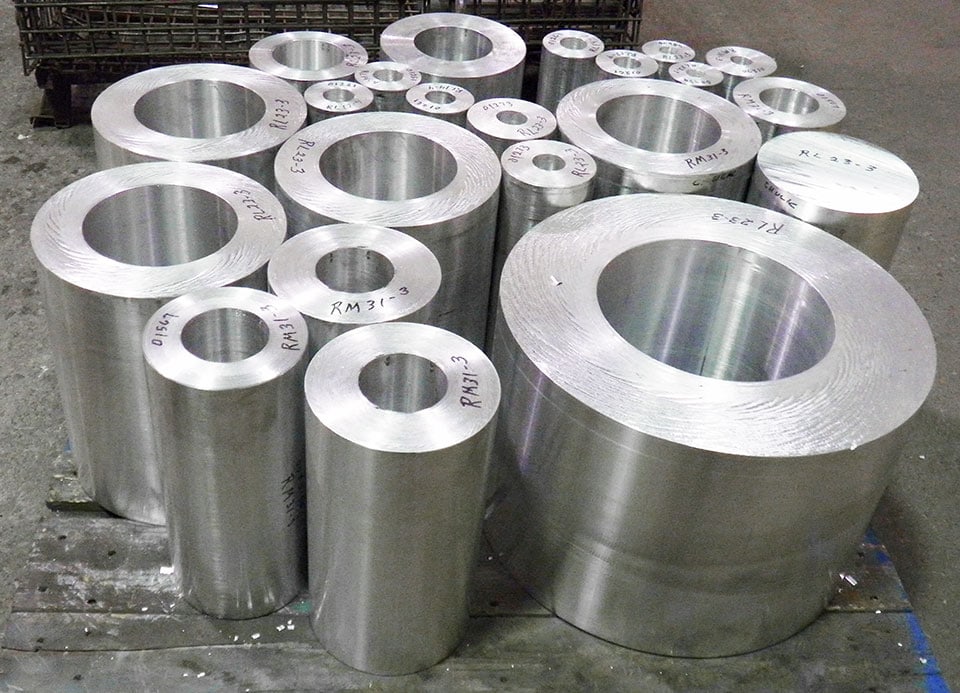The Aluminum Foundry process: from melt to mold
Wiki Article
The Important Uses of Aluminum Foundry in Various Industries and Their Impact
Aluminum foundries serve as a necessary source within numerous markets. Their durable and lightweight materials greatly enhance performance in automotive, aerospace, construction, and electronic devices industries. As each market leverages aluminum's distinct homes, they additionally add to sustainability initiatives. This diverse impact motivates a much deeper exploration of how Aluminum shaped these sectors. What specific innovations and advantages arise from its use?Automotive Sector Applications
The auto sector increasingly counts on Aluminum Foundry applications to improve vehicle performance and efficiency. Aluminum's light-weight nature contributes considerably to fuel economy, making it a preferred choice for producers aiming to reduce emissions and improve overall lorry dynamics. Components such as engine blocks, transmission housings, and wheels are typically produced with Aluminum casting processes, permitting elaborate designs that meet rigorous safety and efficiency requirements.
Aerospace Innovations

Additionally, the use of aerospace-grade Aluminum alloys enhances resistance to deterioration and tiredness, important for the requiring atmospheres aircraft face. Innovations in additive production additionally permit for quick prototyping and modification of elements, reducing lead times and prices.
Building and Facilities
While the building and construction and infrastructure fields remain to advance, Aluminum factories are progressively identified for their contributions to modern-day structure techniques. Aluminum's light-weight nature and high stamina make it an optimal product for different architectural applications. Factories supply elements such as beams, frameworks, and frontages that improve the sturdiness and long life of buildings and facilities tasks.Aluminum's rust resistance plays a crucial role in extending the life expectancy of structures revealed to extreme environmental problems. The power effectiveness of Aluminum items additionally lines up with sustainable structure initiatives, adding to reduced power consumption in construction. Furthermore, ingenious spreading methods have actually broadened the layout opportunities, permitting architects and engineers to produce visually pleasing yet practical structures.
Electronics Manufacturing
Aluminum factories play a substantial duty in the electronic devices making industry, where the demand for lightweight and thermally conductive products is paramount. Aluminum Castings. Elements such as warm sinks, housings, and brackets are often produced utilizing Aluminum due to its excellent thermal buildings and ability to dissipate warmth effectively. This is vital in electronic devices, where overheating can lead to failing and decreased performanceThe versatility of Aluminum enables complicated layouts and accurate machining, which are essential in modern-day electronics. Additionally, aluminum's non-magnetic properties make it ideal for applications in sensitive electronic devices, minimizing disturbance. Light weight aluminum's resistance to corrosion boosts the resilience of digital elements, ensuring long life and reliability.
Sustainability and Recycling Efforts
Offered the boosting emphasis on environmental responsibility, the Aluminum Foundry market has actually made significant strides in sustainability and recycling efforts. Aluminum is naturally recyclable, enabling foundries to redeem and reuse material with minimal energy expenditure compared to key production. This closed-loop recycling procedure not only minimizes waste however likewise reduces greenhouse gas exhausts, adding to a much more sustainable manufacturing version.Several factories are embracing energy-efficient modern technologies, consisting of eco-friendly energy resources, to power their procedures. This shift not just decreases dependence on fossil gas however additionally boosts general operational performance
Market collaborations are more promoting sustainable practices, such as sharing best practices and developing innovative recycling techniques. By prioritizing these initiatives, the Aluminum Foundry sector is placing itself as a leader in lasting manufacturing, lining up with global targets for sustainability while meeting the needs of different sectors.

Frequently Asked Questions
What Are the Primary Advantages of Using Aluminum in Foundry Processes?
The main advantages of Metal Castings making use of Aluminum in Foundry processes include its light-weight nature, outstanding rust resistance, high thermal and electrical conductivity, and versatility, allowing for intricate designs and reliable recycling, eventually improving overall production efficiency and reducing prices. - Metal CastingsHow Does Aluminum Foundry Influence Item Lifecycle Management?
Aluminum Foundry substantially enhances item lifecycle monitoring by allowing effective material usage, decreasing waste, and facilitating recycling. Its light-weight residential or commercial properties enhance transport effectiveness, while sturdiness expands item lifespan, eventually contributing to sustainability and cost-effectiveness in production.Are There Specific Obstacles in Aluminum Foundry Production?
Certain challenges in Aluminum Foundry production consist of managing temperature level control, guaranteeing worldly quality, lessening waste, and adjusting to varying market needs. These factors can influence effectiveness, price, and overall competitiveness within the sector.What Safety And Security Procedures Are Essential in Aluminum Foundry Workflow?
Crucial precaution in Aluminum Foundry procedures consist of personal protective devices, appropriate ventilation, regular equipment upkeep, threat interaction, and emergency situation action training. Implementing these techniques warranties worker safety and security and reduces dangers linked with high-temperature metal handling.Exactly how Does the Expense of Aluminum Compare to Other Steels in Foundry Use?
The cost of Aluminum is generally less than that of metals like copper and titanium, making it a cost-efficient selection for several Foundry applications. This price contributes to its extensive usage across different markets.Aluminum shops serve as a vital source within many markets. The automotive market increasingly depends on Aluminum Foundry applications to enhance car performance and effectiveness. The product's recyclability likewise straightens with the market's press towards sustainability, as recycled Aluminum needs considerably less energy to process contrasted to primary light weight aluminum. Aluminum shops play a substantial function in the electronic devices manufacturing market, where the need for thermally conductive and light-weight materials is critical. Offered the boosting focus on ecological responsibility, the Aluminum Foundry industry has made substantial strides in sustainability and recycling efforts.
Report this wiki page